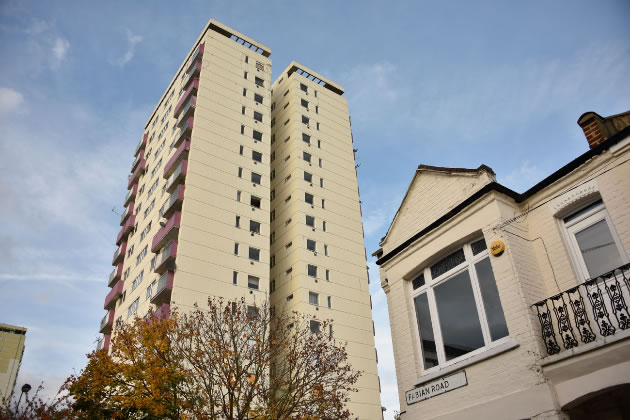Council 'Reluctantly Accepts' Need for Maximum Rent Rise
Says 7.7% increase required to allow services to tenants to be maintained

More social housing planned at Edith Summerskill House. Picture: HF Council
February 5, 2024
There is a ‘reluctant acceptance’ among some residents that council house rent will have to go up if services are to be maintained, admitted a council officer. Hammersmith and Fulham Council is looking to up its rent for social tenants by the maximum allowed for the year ahead, with an increase in service charges also being proposed.
The local authority has however said it expects to balance its Housing Revenue Account (HRA) budget for 2024/25, a feat Danny Rochford, head of finance for the council’s Economy and Housing Revenue Account (HRA) service, has described as ‘a milestone achievement’. This is after a deficit of £3.6 million for 2023/24, and £4.1m for 2022/23.
The council is putting its budget proposals before each of its Policy and Accountability Committees (PACs), ahead of it going to Cabinet and then Full Council at the end of February for final approval.
An area with low tax, Hammersmith and Fulham is proposing to hike council tax by 4.99 per cent, the maximum allowed, for 2024/25. Recently unveiled in documents detailing its proposed HRA budget, which records its projected spend and income from running its own housing stock, it is also looking to increase its average rent for social tenants by 7.7 per cent from April, equivalent to roughly £9.62 per week, and the average service charge by £3.18 a week.
There are however some reductions included in the plans, namely for heating and hot water, which are to drop by an average of 41p a week for communal use, and £1.87 for personal use.
Speaking at a Housing and Homelessness Policy and Accountability Committee meeting earlier this week, at which the HRA budget was presented, Mr Rochford said of the various costs fuelling the proposed rent increase, “The majority of those charges are increasing in line with inflation, which is what one would expect, but there are some exceptions. There are two exceptions where the increase will be more significant. That’s caretaking and communal lighting.”
The increased spending on caretaking specifically, he continued, was due to a combination of inflation, and the council’s commitment to ensuring its staff and contractors are paid fairly under the London Living Wage.
Sukvinder Kalsi, strategic director of finance at the council, added that there is a wide range of support for tenants, including housing benefit, and that a social tenancy remains ‘worth its weight in gold’. This is due to benefits such as the security social homes provide, and their cost, which is on average about a third of private rent.
“What the council is trying to do…is to make sure that long term this very, very important resource, for 12,000 homes, one in six people in the borough in my estimate live in a council house, that is protected for the future for them,” he said.
Cllr Jacolyn Daly, Chair of the committee, asked officers how the proposed budget had been received by housing forums it had been presented to.
Mr Rochford said, “I think that there is an acceptance and an understanding that we are still living through a cost of living crisis, and that affects people in the street, it affects everybody across the country, it affects councils that are having to deliver services, so I think that I would conclude that there is a reluctant acceptance that these are increases that have to happen and people understand that we are managing services and making improvements within the financial envelope that we have.”
As with many other local authorities, Hammersmith and Fulham has been hit with a huge rise in homelessness applications over the last couple of years. Cllr Frances Umeh, cabinet member for housing and homelessness, said at the meeting that such applications had increased by 20% when comparing the end of 2023 to the year before.
Presenting the Medium Term Financial Strategy to the committee, which is separate from the HRA budget, Mr Rochford said the ‘steep rise’ of homelessness approaches was expected to continue. As such, the council is proposing to invest a further £1.5m to help manage the additional numbers over the coming year.
Temporary accommodation costs are expected to take up more than half of the housing solutions’ £42.7m expenditure for 2024/25, the committee was told. The lack of homes is a significant issue, with the cost of putting a household into a private property far less per year, £6,000, than into a Bed and Breakfast, £14,000.
“We are seeing higher numbers coming through, and we expect this to continue for the rest of this year and to continue into next year,” Mr Rochford said. “What we’re seeing now is really out of the ordinary.”
Ben Lynch - Local Democracy Reporter